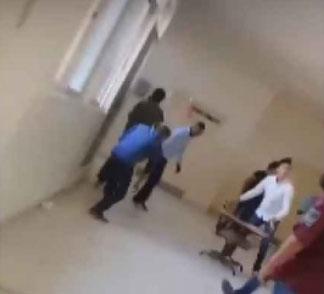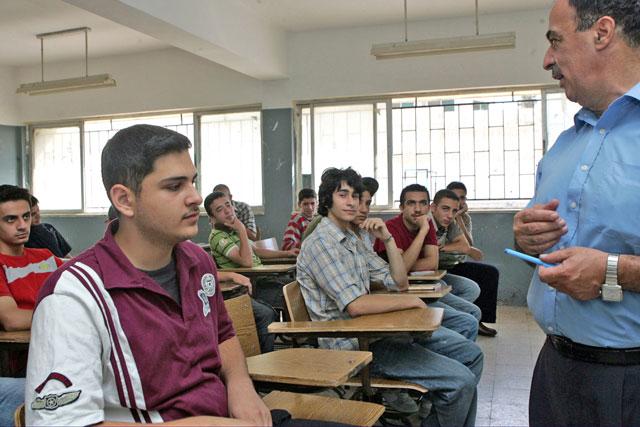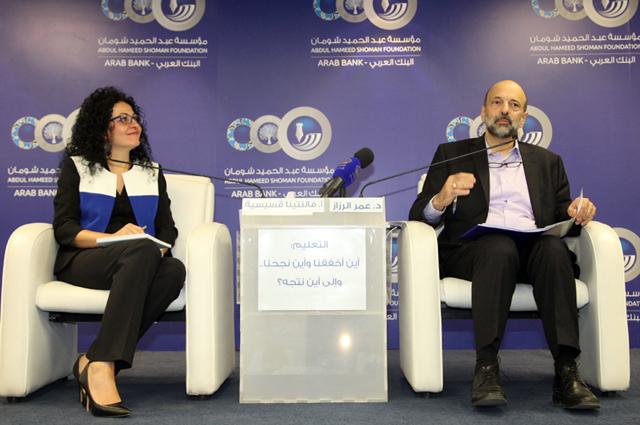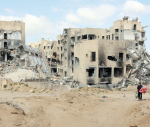You are here
Education ministry announces plan to combat school violence
By Renad Aljadid - Mar 19,2018 - Last updated at Mar 22,2018
AMMAN — The Ministry of Education has announced a plan to combat school violence, following the recent incidents that took place at schools across the Kingdom, drawing mixed reactions among parents and educators.
"It is really sad to hear that several school violence incidents took place within a few weeks. We are now afraid of sending our children to schools as no strict measures have been taken by officials to curb the phenomenon," parent Majdi Mohammad said, adding, "I hope we won't reach a point when we prefer our children to be home schooled."
Director General of the Education Management at the Ministry of Education Zainab Shawabkeh said: "Violence is an 'old-new' issue that has always been present. The ministry already has several plans to combat this phenomenon, and the existing plans are constantly updated based on the new factors that come up".
The ministry's current plan, a copy of which was sent to The Jordan Times, is centred around three main functions: constructive — to engage students in various educational activities; preventive — to raise social and behavioural awareness to prevent violence; and remedial — to conduct case studies and draft plans that deal with violence cases.
To achieve its objectives, the ministry lists a number of measures including appointing and training educational advisors, conducting anger management sessions and summer camps to students, and partnering with UNICEF and NGOs and other educational institutions to organise workshops and activities for students. The plan also suggests placing more focus on extracurricular activities such as competitions, drawing, sports, among other cultural activities.
For Mustafa Fayyadh, a school principal, the solution to school violence lies in putting in place a set of preventative measures. "Punishment is not a solution. We can issue warnings, call students' parents, or even temporarily or permanently dismiss students, but this will not solve the core of the problem. Our main role is to raise educational and moral values among students, and this will be their deterrence from committing such acts."
Describing fights at schools as a "common occurrence", Amani Hatem, a school teacher, added, "How we, as teachers, neutralise these fights and prevent them from escalating to such severe extents is crucial."
Student Ibrahim Jitan expressed his concern over the possession of weapons in schools in light of a recent shooting incident in Amman, saying the society rather than school is to blame for such violations. "Parents should have more control over their children," he said.
Over the past weeks, a number of violent incidents in schools across the Kingdom were reported, the most recent of which involved the alleged shooting of a student while at his school in Amman’s Abu Nuseir neighbourhood. The event reportedly happened after a quarrel broke out between two students.
A few days ago, a student attacked his school principal in Irbid, causing him severe bleeding.
Hussein Al Khuzai, a professor of sociology at Al Balqa Applied University said: "Teenagers are overwhelmed by a misunderstanding of 'dignity'. They take everything personally and display reactions that are bigger than the problem itself."
"The explicit violent scenes in the media also have a role to play in feeding violence among the youth as children get used to committing 'virtual' violent acts through the games they play," he added.
Education Minister Omar Razzaz commented on the rising violence on his twitter account three weeks ago, saying that the ministry's efforts so far have been geared towards enhancing students' academic achievements, but will also be focused on involving students in various activities starting next year.
He cited plans to allocate 20 per cent of school time for extracurricular activities, also highlighting the important role of parents and educators in providing psychological and behavioural guidance to children, in addition to formal teaching.
Related Articles
AMMAN — Video taped scenes of group violence happening in a public high school for males in Madaba Governorate have generated anger and hars
AMMAN – A weekly class that covers the dangers of terrorism will now be taught at the Kingdom's schools as part of a comprehensive plan to c
AMMAN — Minister of Education Omar Razzaz on Monday held a lecture about the “reality of education” in Jordan, outlining the failures and su



















